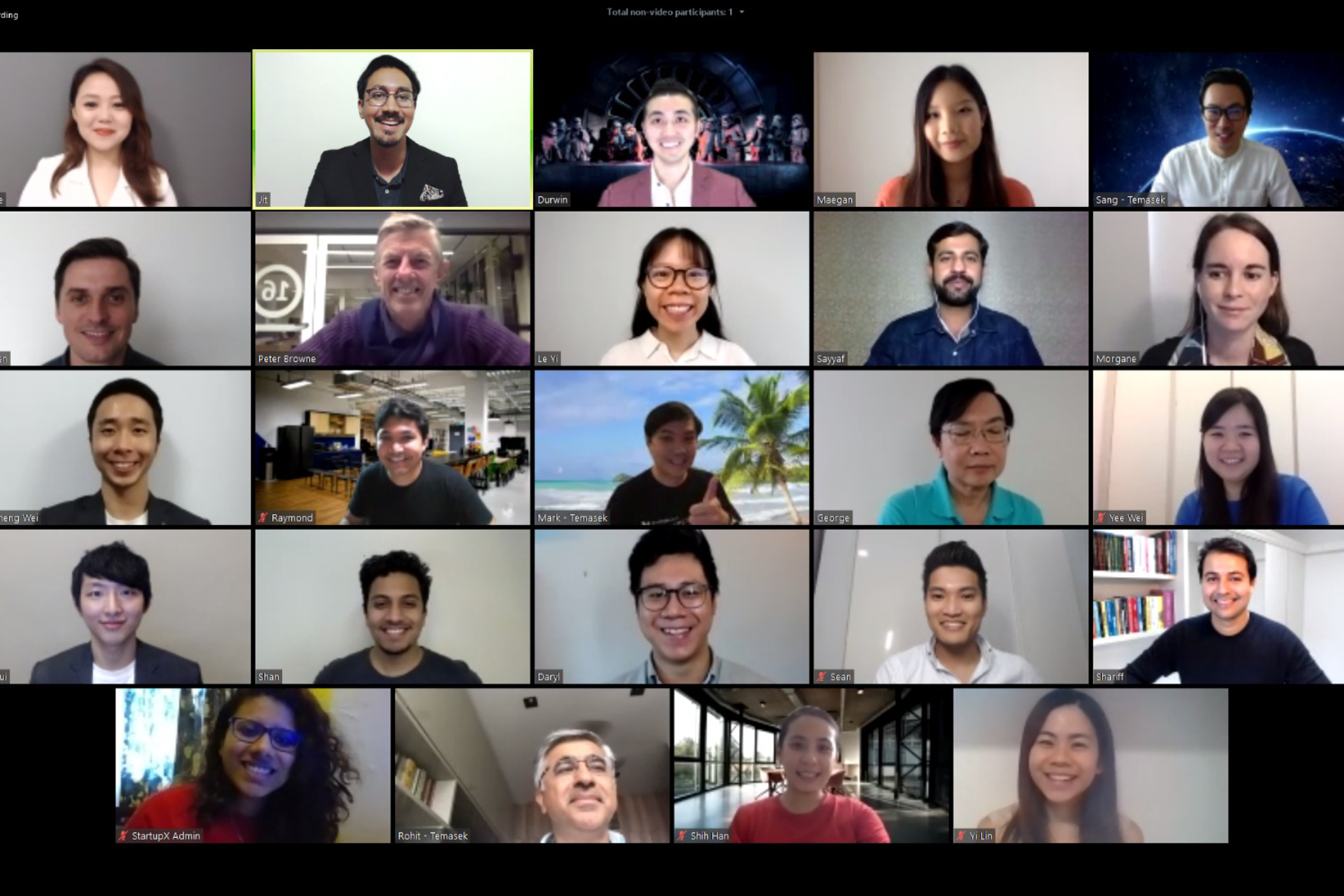COVID-19 has affected all aspects of society.
With respect to the dimensions of development, what we are experiencing is a paradigm shift in the evolution of humanity. The core aspects of our identities, as well as how we work, learn and engage with society is advancing.
According to MaGIC’s recent survey: less than 3% of the startups in SEA think they would survive past 12 months if COVID-19 persists. The current situation is deeply unsettling for the ecosystem, more so for every entrepreneur’s fear of staying afloat. Times are hard when founders are trapped in this uncertain space without access to the necessary resources to help them survive.
Therefore, I would like to shed some light on why Virtual Accelerators could be a silver – lining for founders who can strategically benefit from it during these unprecedented times. How can they make the most of their virtual experiences, leverage on resources and the community at scale?
Ecosystem players can only provide as much value to startups as they take from them.
Organisations such as Y-Combinator’s Startup School, Udemy, and Online University courses have pathed the way of e-learning in the past and provided the educational means for participants to access modules virtually at their convenience. As for accelerator programmes, traditionally, founders are required to be physically present to take full advantage of the physical benefits of relocation, such as gaining direct market access. Although the duration for accelerators tends to be longer (over 3 months, HBR), physical involvement in activities and the community element drives the success of the programme & startups ability to accelerate.
“For an accelerator program, the support of mentors, peers and coaches is the backbone and the real recipe for success.” (Source: Innovators Program)
After experimenting with HyperSpark’s first pre-accelerator turned virtual cohort mid-way, I have to admit, it has been enjoyable and I noticed there has been a significant shift and value-add for taking our programme virtually. I’ll be highlighting considerations and covering the following areas in which startups can benefit the most from virtual accelerators :
1. Value add for the Startups
2. Making the most out of your Virtual Accelerator Chapter
Value add for the Startups:
- Community support:
Entrepreneurship is a tough ride, entrepreneurs are required to have a support system in an educational, mental and social state. Even without physical meetups, virtual interactive sessions via classes and live stream conversations can help keep the community engaged. Having a support system during your entrepreneurial journey can set in motion some hard conversations into the struggles you face collectively, especially during COVID-19 as humans tend to connect deeper when we suffer collectively. The emotional realities are also valid when it comes to relationships between business and consumers. I strongly encourage the community to stay active by (1) creating a safe space for founders to open up about their struggles & openly talk about what has been helping them stay safe and sane. (2) organising virtual social activities (quiz night, virtual games,etc), peer-to-peer learnings can be an opportunity for founders to practice solidarity.
- Larger visibility on demo day:
Demo day, traditionally will be shared online after the event, an exclusively granted access to VC’s, media and programme partners, it has now given the opportunity for founders to present at a greater scale. Potentially onboarding viewers as their users, partners. Without venue size constraints, we were able to open up the registrations to the ecosystem. During Hyperspark’s demo day our registrations hit over 600 sign-ups, Marketing & Community outreach played a huge role, as the attendance was double the amount of a physical demo day! View demo day here
- Leveraging on the global network:
Startups can now easily get connected to a larger network of potential partners, mentors, investors and advisors as the new norm to work from home has bonded society to be more open towards virtual connections. You are no longer limited to physical meetups! The opportunities are endless, 2 of our startups had an opportunity to pitch to GGV’s and several VC’s via a FB live stream session. In addition, mentors are open to committing to accelerators globally knowing that they are no longer limited to physical presence.
- Shared infrastructure:
A single place to collaborate, track, and evolve, together regardless of timezone. Entrepreneurs are resourceful, and very much in tune with creating innovative processes. For instance, during HS our teams created a shared excel sheet to add on to their collective resources. Examples that have been done in the ecosystem includes, e27 shared list of resources and Seriously AWEsome list, where some community mechanisms were built to encourage the startup community to build on sharing existing resources collaboratively.
- Opportunity for optimising meetings:
Physical interaction doesn’t guarantee optimum results, in fact the pandemic has taught us the true nature of engagement, compassion and collaboration ; that people lead to a deeper appreciation on prioritising time. With online communication, mentors and founders are given a more detailed, personalised feedback session which encourages both parties to optimise their time and articulation of messages more efficiently. Calendly is probably a timesaver once you integrate it into your calendars.
Considerations for making the most out of your virtual accelerator chapter:
- Align with the relevance of the theme and subject-matter expertise
- Timing and readiness are factors to consider when joining a programme to ensure your plans are aligned with your accelerator’s commitment and timeline.
- Optimise check-in’s (progress reports & concerns/challenges)
- Planning your schedule in advance and integrating platforms/resources that can ease your process is crucial for longevity
- Never skip orientation, because you do miss out, everything begins from the day your cohort begins!
- Facilitate connections among cohort members
- Aim to constantly apply learnings from mentors
- Give & receive feedback (User experience and customer journey are introspections which leads to success)
- Challenge the status quo
- Set expectations for your team and your account manager
- Leverage on the accelerator branding as your edge for Marketing / PR
Surely this list is non-exhaustive and more benefits can be generated as we improve our activities, gather more findings and learnings to add value to our entrepreneurs.
I personally believe the pandemic has become a driving force and fuel for the next wave of innovation. Eventually, the startup ecosystem will come out on the other side of this pandemic with a greater sense of personal empowerment and increased connection to community – all of which will be beneficial for society in the future.
Feel free to share your thoughts and connect with me at [email protected].









